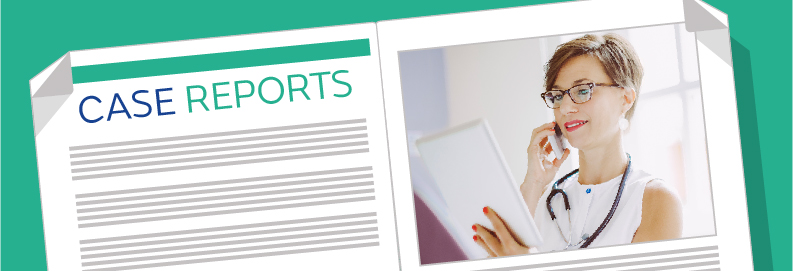Emergency law needed to protect doctors at risk of legal challenge when treating COVID-19 patients
Post date: 14/04/2020 | Time to read article: 4 minsThe information within this article was correct at the time of publishing. Last updated 14/04/2020
The UK Government should introduce emergency laws to protect doctors and other healthcare professionals and the clinical decisions they make during the coronavirus crisis, a change similar to new laws introduced in New York state, Medical Protection said today.
Medical Protection has expressed concerns about the vulnerability of healthcare professionals to criminal and regulatory investigations following decisions they may have to make in terms of when emergency treatment can be withheld or withdrawn.
The organisation said that decisions on whether to administer or withdraw life prolonging treatments have long been made on a basis of what is in the best interest of the patient, but that normal decision-making processes will be put under enormous strain during a pandemic, especially when surges in demand temporarily exceed supply.
In everyday practice doctors make triaging decisions in the best interests of the patient in front of them, based upon the benefits and limitations of different treatment options. This pandemic however has the potential to ask doctors to also consider factors such as the availability and capacity of current resource when making decisions which would otherwise be purely clinical.
Concerns have been raised about the current lack of clarity as to whether it would be lawful for a ventilator to be withheld or removed from one patient in order to sustain the life of another, and if so under what conditions.
In these types of circumstances there are, for obvious reasons, significant legal problems which could leave individual clinicians vulnerable.
Doctors have a range of guidance they can refer to, whether it be from their employing hospital or from their royal college, union, regulator or NICE. Ethics committees at individual hospital level can provide advice taking into account the specific needs of the communities they serve. However, while this guidance is valuable, it neither provides nor claims to provide legal protection.
As a result, not only is a huge humanitarian burden being placed on doctors that may cause moral injury and long-term psychological damage, they also face the risk of personal accountability if and when legal challenges arise.
Medical Protection has urged the UK Government to introduce emergency laws, similar to those being passed in New York state, so doctors know they are legally protected when making momentous decisions in very challenging circumstances that are in the best interest of their patients.
These protections would need to cover two main areas: making decisions about when treatment can be withheld, for example referring and admitting patients to hospital or putting patients onto ventilation, and when treatment can be withdrawn.
Such legal protections should be temporary for the duration of the coronavirus crisis, Medical Protection said. This protection should also be limited so that it does not apply to wilful or intentional criminal harm or reckless misconduct.
Dr Rob Hendry, Medical Director at Medical Protection, said:
“Doctors have been contacting Medical Protection telling us they have concerns about the decisions they are having to make in very challenging circumstances and how they can be sure that they are acting lawfully.
“Healthcare professionals want the very best for their patients and doctors across the country are doing everything they can to ensure those infected with the virus get the best medical treatment possible.
“It is simply not fair for doctors already under immense pressure to be asked to make difficult treatment decisions based on a hope that the courts and the GMC will treat them favourably and protect them in the future if their decisions and actions are challenged.
“The UK Government has already shown that it can introduce sweeping new laws very quickly. New York state has also demonstrated that such changes are possible. Similar laws need to be introduced quickly to protect doctors and other healthcare professionals in the NHS for decisions they make in good faith and in compliance with the relevant local and national guidance.
“While there will be time in the future to debate the range of ethical challenges that have been raised by this pandemic, these are difficult discussions that will need a significant amount of time as well as consideration of a wide range of different perspectives. In the meantime, this crisis is already upon us and doctors and other healthcare professionals need immediate action.
“Hopefully heart rendering decisions about rationing can be avoided by containing the spread of the virus, but we must be prepared. We must provide protection to our frontline healthcare teams to allow them to focus on the excellent care they are currently providing to patients and to make clinical decisions free from the fear of the risk of criminal charges. Now more than ever, doctors need to be able to focus on saving lives, not on avoiding prosecution.”
END
Notes to editors
Allocation of treatment for Covid-19 patients was the subject of a recent Medical Protection podcast with a leading QC, which can be found at www.medicalprotection.org/covid19-podcast
For further information contact: Mike Bridge at [email protected] +44(0)7773 573303.
About Medical Protection
Medical Protection is a trading name of The Medical Protection Society Limited (“MPS”). MPS is the world’s leading protection organisation for doctors, dentists and healthcare professionals. We protect and support the professional interests of more than 300,000 members around the world. Membership provides access to expert advice and support and can also provide, depending on the type of membership required, the right to request indemnity for any complaints or claims arising
from professional practice.
Our in-house experts assist with the wide range of legal and ethical problems that arise from professional practice. This can include clinical negligence claims, complaints, medical and dental council inquiries, legal and ethical dilemmas, disciplinary procedures, inquests and fatal accident inquiries.
Our philosophy is to support safe practice in medicine and dentistry by helping to avert problems in the first place. We do this by promoting risk management through our workshops, E-learning, clinical risk assessments, publications, conferences, lectures and presentations.
MPS is not an insurance company. All the benefits of membership of MPS are discretionary as set out in the Memorandum and Articles of Association.






